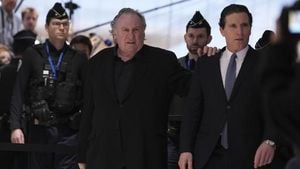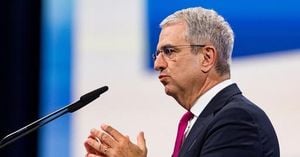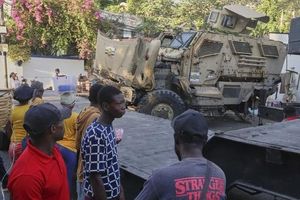The United States has reinstated stringent eligibility criteria for its Visa Interview Waiver, commonly referred to as the "dropbox" facility, marking a return to pre-pandemic regulations. Effective immediately, only those renewing a visa in the same nonimmigrant category, provided it expired within the last 12 months, will qualify for the dropbox option.
Previously, applicants could bypass the requirement for in-person interviews if their visas had expired within the past 48 months—a policy implemented during the COVID-19 pandemic to accommodate the sharp increase in visa application backlogs. Reports confirm, without any formal announcement from the U.S. Department of State, Visa Application Centers (VACs) have already begun enforcing these revised criteria, denying entry to individuals who do not meet the updated requirements.
This sudden rollback affects thousands of Indian travellers, particularly nonimmigrant visa holders relying on the convenience of the dropbox facility for renewing their H-1B, L-1, and B1/B2 visas. Under the previous policy, these applicants could renew their visas without attending consular interviews, streamlining their travel-related activities. Now, many will be required to schedule and attend these interviews, which could significantly increase wait times at U.S. embassies and consulates already struggling to manage demand.
The updated Visa Interview Waiver Eligibility Criteria state: effective immediately, eligibility to waive the in-person visa interview is limited to applicants renewing their visas within the same category, and only if those visas expired within the past 12 months. Without this qualification, individuals must secure an appointment for face-to-face interviews at U.S. consulates, which many applicants did not anticipate following the previous extensive eligibility provisions.
It’s worth noting how this immediate shift draws attention to the existing instability of the U.S. visa system. Visa wait times remain excessively long—over 440 days for B1/B2 visas alone—already posing complications for frequent travelers including business professionals. The change is expected to exacerbate this backlog, heightening competition for the limited appointment slots available. With applicants who planned renewals under the belief they would qualify for the dropbox now required to reschedule interviews, significant delays across the board seem inevitable.
Visa applicants should take proactive steps to mitigate the challenges posed by these new rules. Firstly, it is imperative for individuals to verify their eligibility for the dropbox process before scheduling any appointments; those whose prior visas expired over 12 months ago will need to arrange for personal interviews. Consequently, there is also mounting concern about how these changes will impact travel plans for business professionals and other individuals who rely on expedited visa renewals to support their overseas engagements.
Among possible strategies, applicants may want to look at alternative consulates for their visa interviews, particularly smaller cities where appointment waits may be shorter, or neighboring countries where consulates process various visa types. Being aware of demand shifts can be beneficial to securing timely appointments. Considering Premium Processing options for H-1B extensions is also encouraged, as it could reduce processing times significantly.
Despite these challenges, the demand for U.S. visas remains at unprecedented levels, with over 1.76 million Indian nationals traveling to the United States this year alone, showcasing the enduring ties between the two nations. The rollback to the 12-month eligibility window signifies not just logistical turmoil for applicants but serves as a reminder of the bureaucratic evolution of the immigration process, which continues to encounter shifts amenable to broader diplomatic and economic changes.
Overall, the reinstatement of stricter criteria has concealed consequences for many who have come to rely on the more lenient approach put forth during the pandemic, turning the visa renewal process from a once manageable procedure back to what many view as complex and time-consuming hurdles. The outlook for the U.S. visa system highlights the pressing need for applicants to adapt quickly to changing policies and to prepare for potential disruptions to their personal and professional travel plans.



